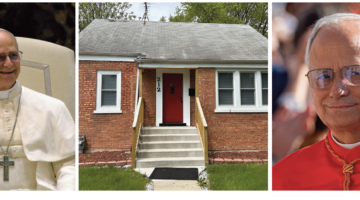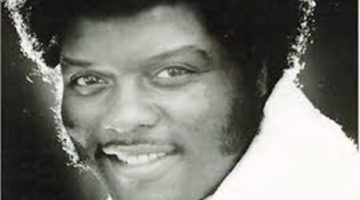AN UNFORGETTABLE WRETCH: In a brilliant character-driven story that gives Marianne Jean-Baptiste room to create an Oscar-caliber portrayal. PHOTO COURTESY OF SIMON MEIN / THIN MAN FILMS LTD
She speaks her mind. Unfortunately for family, friends and strangers, most of her rants are aggressive, accusatory, abusive and petty. Hard to believe anyone could be so irascible. Hard to believe she can change. Can she?
Pansy (Marianne Jean-Baptiste) has a bug her up her crawl. She belittles her twentysomething-year-old, overweight and aimless son Moses (Tuwaine Barrett): “Don’t you have any hopes or ambition!” The son’s inferiority complex has got to be rooted in her nagging. Her husband Curtley (David Webber) is a saint for not chiding her when she confronts him. He’s always composed and somewhat immune. The antidote to Pansy is her calming sister Chantal (Michele Austin), but even her soothing tone is not a real fix. And Pansy saves her best ire for strangers on the street, in the supermarket and whoever else is the target of the day, hour or minute. Look out London. Grouch walking.
Rarely is a character so driven by a contempt for others. It’s a secondary characteristic that actor Jean-Baptiste (“Secrets & Lies”) mines until there is nothing left in the till. Emotionally, psychologically or creatively. She can credit writer/director Mike Leigh (“Secrets & Lies”) for the gift. He’s written a masterclass thesis on character study. Pansy is his muse and he skillfully, instinctively builds a world around her with people stuck in her orbit. It’s a testament to his keen sense of what makes good people watching.
Pansy is funny because her abruptness is so curt, not because she has a sense of humor. She has none. Shockingly, she says things generally reserved for conversations behind someone’s back. At some point, when she’s insulting strangers about their physical presence, it makes you wonder if she has some form of depression or dementia. That’s where the screenplay falters a bit. The explanation for her behavior is thin. Building a case around her is admirable. Bringing it to fruition is harder. Oddly some of the quiet moments are as effective as the curse-laden ones. This layering compensates a bit for the ambiguity.
Jean-Baptiste takes the poor wretch to heart. She’s invisible inside this storm. She lets you know, bit by bit, that behind the bluster is a broken person. Afraid. Traumatized. Traumatizing others. The emotions she displays are primal as she squawks like a myna bird caught in a bear trap. The ensemble cast groups around the lead actress like people watching a car crash over and over. They look but can’t heal. Except Chantal, who pulls Pansy closer and closer. At some point the audience needs to see a metamorphosis. Pansy must change, grow, learn or crash. For all that’s been viewed, there has to be a significant capitulation. She doesn’t have to turn into a saint. Nor see the error of her ways. Nor join a 12-step program. But there needs to be something that’s a marked progression or digression. There isn’t.
The interiors of the homes of these Black middle-class folks in modern London look a bit like sets. They’re sterile (production designer Suzie Davies). The clothes on their backs look bland. On the other hand, the pacing (editor Tania Reddin) never dies down. The camera lens (cinematographer Dick Pope) is as probing as a colonoscope, and the musical score (Gary Yershon) has a curious, satiric feel to it.
“Hard Truths” may be billed as a comedy/drama but really, it’s a drama that’s so awkward it makes you laugh nervously. Though social, racial, feminist and culture issues are laced around Pansy’s craziness, it’s really about her life and inner battle. This is a brilliant character-driven story that gives Marianne Jean-Baptiste room to create an Oscar-caliber portrayal of an unforgettable wretch. Some might wish for more.













No Comment